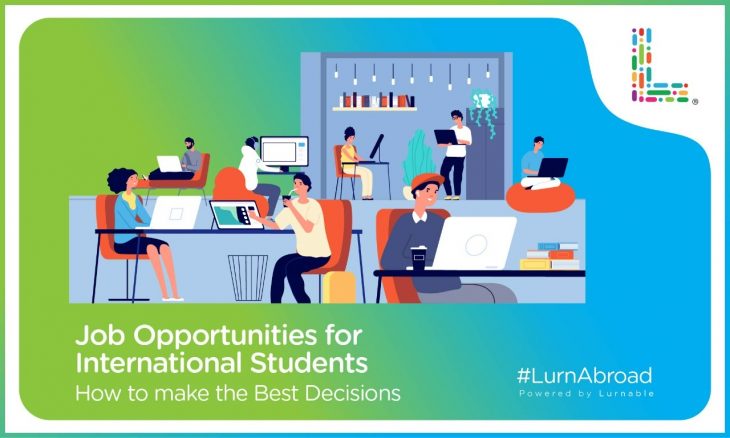When international students start with their study abroad dreams, they often have a long-term vision in mind. Many aspire to work abroad and eventually settle there. They even consider the perspective while choosing their overseas education destination. Every country has a distinct set of career and job possibilities for students in the long run. Before you step into the new world, you must consider some factors to make the best choice. Here are the ones to bear in mind.
PICK THE RIGHT PROGRAMME AND COUNTRY
Whether you plan to only study abroad or stay back to work even after completing your education, choosing the right course should be your top priority. Most top universities at international destinations offer interesting courses, but you must pick one that opens extensive career opportunities. The idea is to find the right combination of programme and country. For example, France and Canada are apt from a career perspective if you plan to pursue a language course in French. Similarly, you can opt for Australia and New Zealand if research opportunities in marsupials intrigue you.
Whether you plan to only study abroad or stay back to work even after completing your education, choosing the right course should be your top priority. Most top universities at international destinations offer interesting courses, but you must pick one that opens extensive career opportunities. The idea is to find the right combination of programme and country. For example, France and Canada are apt from a career perspective if you plan to pursue a language course in French. Similarly, you can opt for Australia and New Zealand if research opportunities in marsupials intrigue you.
UNDERSTAND THE INDUSTRIAL BASE
Another factor to match with your course of study is the industrial base in the country. You can expect to find career opportunities in a specific field only if the country has a big industry in that field. A manufacturing-dominant country will always require people in this field. It means you can explore a huge job market with engineering skills and qualifications. If the country of study has no relevant industry, skip the destination or choose another course. It is the most sensible thing to do if you have immigration in mind.
CALCULATE RETURN ON INVESTMENT
The worst you can do is to consider education costs as an expense rather than an investment. The amount you spend on tuition fees and living costs is actually an investment in your career, and you should see it that way. Once you do it, calculate the return on investment you can get by pursuing a specific programme in a country of your choice. ROI is essentially the expected earnings after completing the course divided by the cost of education. Start by researching the employment and salary stats of the country according to your industry. A course isn’t worthwhile if it is exorbitantly expensive but does not assure optimal returns. As a rule, justify your expectations and choose wisely.
Another piece of advice is to remember that a starting course will probably not open the doors of the hob market. But it can set you on the right path as you can get additional qualifications and explore ample career opportunities in the long haul. Consider current and projected jobs in demand in the country’s market. Also, make sure it is easy to get a post-study work visa in the country of study because tough norms can stand in the way of living and working abroad. It is vital to make these decisions even before you start with your study abroad dreams. You will have a clear and easy road ahead.

If you are considering studying abroad why don’t you discuss your prospects and opportunities with experts at Lurnable’s dedicated study abroad counselling division LurnPathways?





